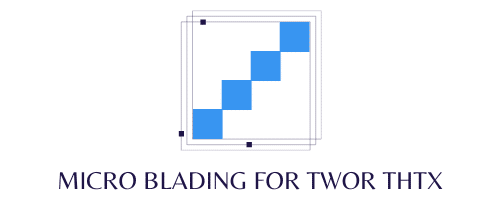What Compliance Challenges Do UK Health Supplements E-Commerce Face?

The digital landscape has created an alluring platform for businesses, providing access to a wider, more diverse market than ever before. But with the vast opportunities the online world presents, it also brings its own set of challenges.
For UK health supplements e-commerce businesses, adherence to compliance and regulatory requirements is crucial. This not only ensures continuous operation but also helps maintain customer trust and loyalty. In this article, we’ll dissect the major compliance challenges that these online enterprises face, the regulatory institutions behind them, and strategies to overcome these hurdles.
A lire en complément : How Can UK B2B Software Companies Improve Customer Success Metrics?
Regulatory Bodies and Related Legal Compliance
The UK has stringent regulations for health supplements e-commerce businesses. These regulations are in place to ensure consumer safety and to maintain the integrity of the product being sold. Several regulatory bodies oversee this sector, with compliance being a pressing issue for online businesses.
The Food Standards Agency (FSA), the Medicines and Healthcare products Regulatory Agency (MHRA), and the European Food Safety Authority (EFSA) are among the principal regulatory bodies. Their regulations encompass everything from product ingredients to marketing claims. Businesses are required to strictly adhere to these laws to avoid penalties, ranging from fines to outright business closure.
Avez-vous vu cela : What are the Best Strategies for UK Independent Filmmakers to Fund Documentaries?
For example, the MHRA ensures that any health claims made about a supplement are backed by scientific evidence. If a product is found to make unfounded health claims, the business may face hefty fines, legal action, and could be required to withdraw the product from the market.
The Impact of Data Handling
In today’s digital business environment, data has become an invaluable asset. E-commerce businesses, including those in the health supplements sector, often gather and use customer information for various purposes, such as improving product offerings or tailoring marketing strategies. However, how businesses handle this data can pose significant compliance challenges.
The General Data Protection Regulation (GDPR) imposes strict rules on how companies collect, store, and use customer data. Non-compliance can lead to severe penalties, often reaching into millions of pounds. The regulation applies to all businesses operating within the UK, including e-commerce sites selling health supplements.
For instance, businesses must explicitly ask for customer consent before collecting their data. They are also required to have measures in place to protect this data from breaches. Failing to do so can quickly turn a profitable e-commerce business into a sinking ship.
E-Commerce and Consumer Rights
Consumer rights are a fundamental aspect of e-commerce law. Regardless of the product or service being sold, businesses need to ensure that they uphold these rights to the highest extent possible. For health supplement businesses, this means providing complete, accurate information about their products and their effects.
Online businesses must also support a clear and straightforward return policy. The Consumer Contracts Regulations entitles consumers to a 14-day cooling-off period during which they can change their mind about a purchase. Failure to support this right can lead to legal complications and a tarnished brand reputation.
Additionally, businesses must address customer complaints promptly and professionally. This can help prevent any escalations that could lead to legal action or negative publicity.
The Role of Digital Marketing
E-commerce businesses depend heavily on digital marketing to attract and retain customers. However, the rules around what can and can’t be said in these marketing campaigns are quite strict, particularly for health supplements.
The Advertising Standards Authority (ASA) oversees all advertising content in the UK. They ensure that advertisements are accurate and not misleading to consumers. For health supplements, this means that any claims about the product’s health benefits must be substantiated with scientific evidence. Misleading consumers with false claims can quickly lead to sanctions from the ASA.
Navigating International Regulations
For those UK e-commerce businesses looking to expand globally, international regulations pose yet another challenge. Different countries have their own set of laws and regulations regarding health supplements, and businesses need to be aware of these before entering a new market.
For instance, while a product may be compliant with UK regulations, it may not meet the legal requirements in another country. This requires businesses to conduct extensive research and possibly reformulate their products to meet the regulations of each market they enter. It’s a complex and often time-consuming process, but necessary to avoid regulatory backlash and potential damage to the business’s reputation.
Artificial Intelligence and Machine Learning in Compliance
In the evolving world of digital health, artificial intelligence (AI) and machine learning (ML) have emerged as key tools in maintaining regulatory compliance. These advanced technologies are becoming indispensable for UK e-commerce businesses in the health supplements sector by aiding in the management of compliance tasks and reducing risks linked to human error.
AI and ML can automate a variety of functions, including data analysis, market surveillance, and predictive modelling. This can help businesses identify potential compliance issues before they escalate, thus saving time and resources. For instance, AI can be used to analyse market trends and customer feedback to identify potential health claims that could violate MHRA regulations.
Moreover, AI and ML can be instrumental in dealing with data protection and security. Sophisticated algorithms can detect suspicious activities or breaches, thereby protecting personal data and helping businesses stay compliant with the GDPR. These technologies can also facilitate a more efficient supply chain by predicting demand and managing inventory, reducing the risk of selling products past their expiry date.
However, using AI and ML also presents challenges. Businesses should have a clear understanding of these technologies and their limitations, considering factors such as data privacy, intellectual property rights, and the transparency of AI algorithms. It’s essential to deploy these technologies in a responsible and ethical manner to retain customer trust and adhere to regulatory standards.
Adapting Compliance Strategies in the Face of Changing Regulations
In the ever-changing landscape of digital health, it is not just the technologies that are evolving. Health care regulations and the way they are enforced are also being continuously updated and modified in response to new challenges and advancements. Consequently, health supplement e-commerce businesses in the UK need to constantly adapt their compliance strategies.
To stay ahead of the curve, businesses need to monitor regulatory updates regularly and review their compliance strategies accordingly. This might involve engaging with regulatory bodies, participating in industry forums, or investing in compliance training for employees.
Furthermore, businesses should consider implementing a robust compliance management system. This can help identify gaps in compliance, streamline compliance tasks, and ensure that all operations adhere to the latest regulations. Such a system can also provide documentation of compliance efforts, which is crucial during inspections or audits.
Conclusion: Maintaining Compliance – A Continuous Journey
Ensuring regulatory compliance is a continuous journey, not a one-time task. It’s an integral part of doing business in the health supplements sector, particularly in the digital arena. Navigating the complexities of compliance can indeed be challenging, but it’s a necessary endeavour to maintain consumer trust, uphold brand reputation, and ensure business continuity.
From respecting consumer rights, handling personal data responsibly, and validating health claims, to leveraging AI for compliance tasks, and adapting strategies to changing regulations, multiple aspects need meticulous attention. Businesses must stay vigilant, regularly reviewing their approaches and making necessary adjustments.
Ultimately, the key to successfully overcoming compliance challenges lies in embracing a proactive and adaptive approach, staying informed about regulatory changes, and fostering a culture of compliance within the business. The journey might be arduous, but with a strategic approach and the right tools, UK e-commerce businesses can thrive in the ever-evolving landscape of digital health.
